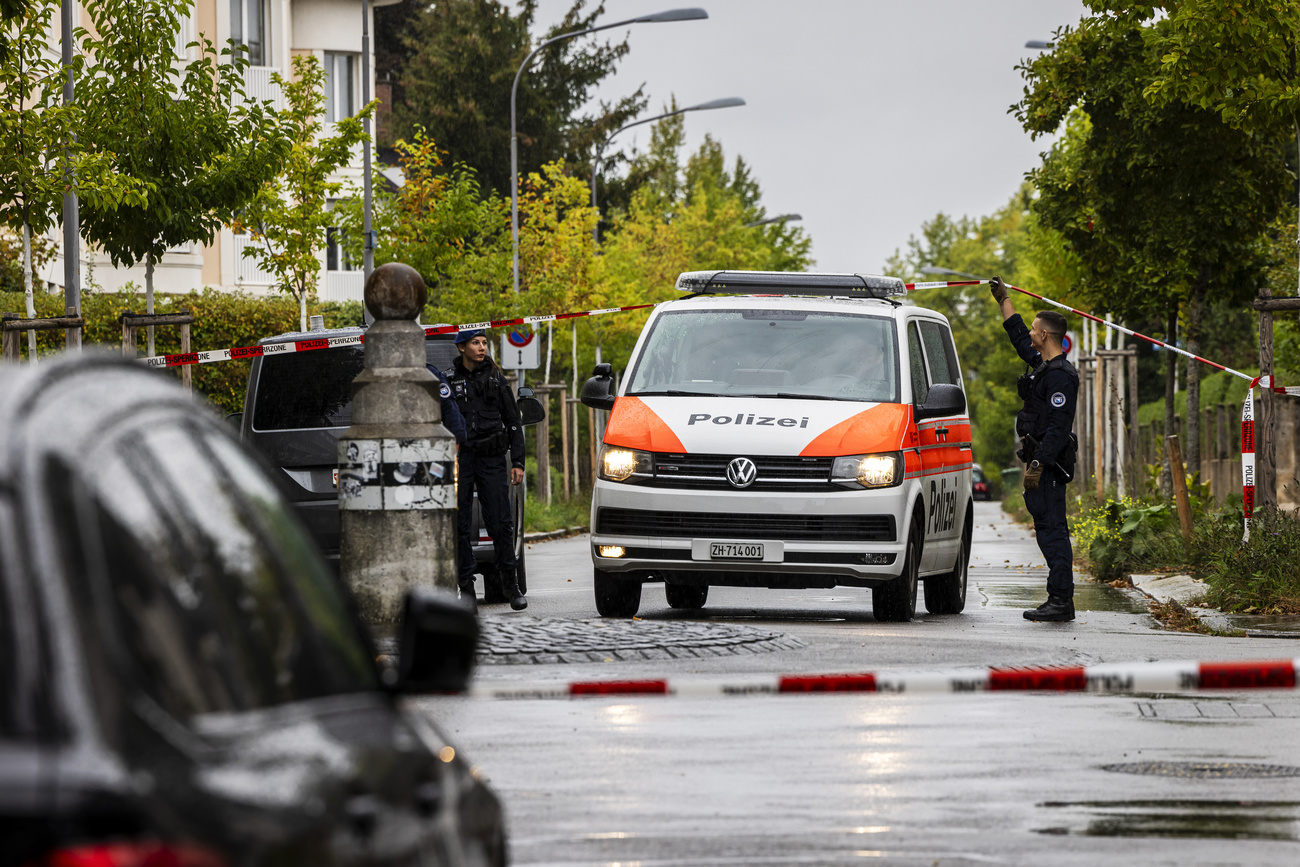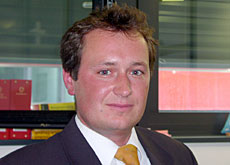Bern and Riga on same police wavelength

Switzerland and Latvia have strengthened police cooperation in an effort to fight international crime.
Christoph Blocher, the Swiss justice minister, and Eriks Jekabsons, the Latvian interior minister, signed a bilateral accord in Riga on Monday.
The agreement covers the exchange of information, coordination and training, and is also aimed at defining the tasks of a special police attaché.
Central to Blocher’s talks with Jekabsons were counter-terrorism measures and cooperation in the areas of asylum and immigration.
The Latvian police have years of experience in fighting economic crime, money laundering and the trafficking of women.
The accord will most likely be submitted to the Swiss parliament for discussion in the autumn.
Eastern development
During his weekend visit to Latvia, Blocher also met Vaira Vike-Freiberga, the Latvian president, and Solvita Aboltina, the country’s justice minister.
“The treaty with Latvia forms part of efforts to fight international organised crime, not only through multinational cooperation via Interpol and Europol, but also through bilateral accords,” said a justice ministry statement.
Similar accords have already been signed with Switzerland’s neighbours – Germany, France, Italy and Austria – as well as Hungary.
The Czech Republic – which like Latvia is one of the ten new European Union member states – is expected to be next.
“Ideally we would like to have such agreements with all the new EU member states in eastern Europe, but also with Russia,” justice ministry spokeswoman Beatrice Born told swissinfo.
Popular vote
On June 5 Swiss voters will have the final word on closer police and asylum cooperation with the EU.
Under the terms of the Schengen/Dublin agreements, systematic border controls would be abolished and asylum seekers could be sent back to the country where they filed their first request.
On September 25 the Swiss are also due to decide whether to grant citizens of the ten new EU member states access to the country’s labour market.
Switzerland gradually opened its labour market to citizens of the existing 15 EU member states as part of a first round of bilateral treaties between Bern and Brussels which came into force in 2002.
swissinfo with agencies
The treaty is the first of its kind with a Baltic state.
Switzerland has similar agreements with five other countries, including neighbouring Germany, France, Italy and Austria.
Accords with Slovenia and the Czech Republic, two new EU member states, are due to come into force in the near future.

In compliance with the JTI standards
More: SWI swissinfo.ch certified by the Journalism Trust Initiative










You can find an overview of ongoing debates with our journalists here . Please join us!
If you want to start a conversation about a topic raised in this article or want to report factual errors, email us at english@swissinfo.ch.